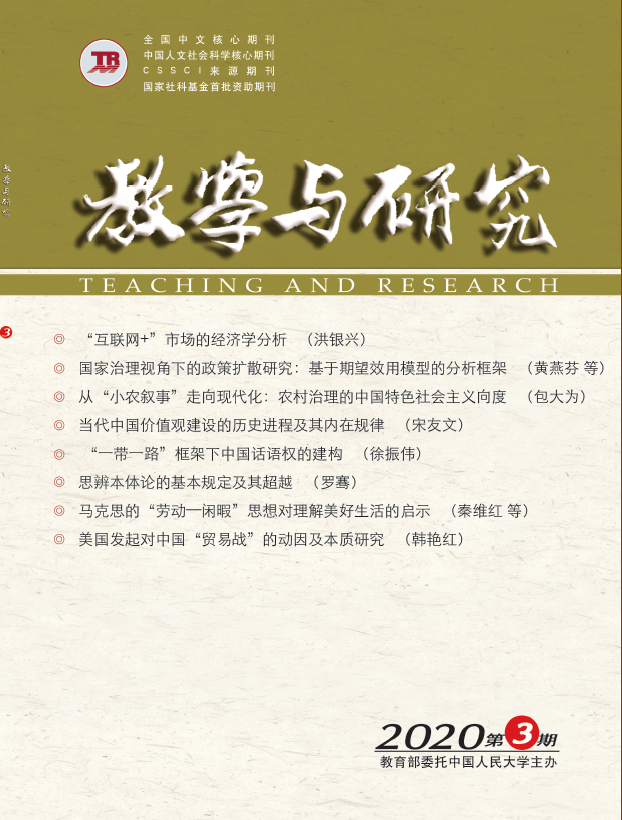|
|
Research on Policy Diffusion from the Perspective of State Governance: An Analysis Framework Based on Expected Utility Model
Huang Yanfen, Zhang Chao
2020, 54 (3):
13-25.
DOI:
China's state governance system is formed and continuously improved in the reform process, in which many important reforms can be regarded as a longterm, largescale, multidisciplinary, gradual policy diffusion involving all levels of local governments under the leadership of the central government. Information, behavior and incentive are the three key elements of policy diffusion. The mechanism design theory effectively integrates these three elements and lays a foundation for the theoretical attribution of policy diffusion.Based on this, this paper constructs a general theoretical framework for exploring policy diffusion from the perspective of state governance based on the expected utility model.By doing so, it realizes the model expression of mechanism design theory, and forms a policy diffusion methodology with practical value, and further analyzes the formation mechanism of different channels of policy diffusion. Finally it suggests that the comprehensively deepening reform agenda in the New Era should focus on the toplevel design with the core task of upholding and perfecting the socialist system with Chinese characteristics and promoting the modernization of the national governance system and governance capacity, and grasp the sequence, rhythm and strategy of the reform, as well as create the new realm of “governance of China”,aiming at providing a good system and governance guarantee for the Chinese nation to achieve the goal of “two hundred years” and its great rejuvenation.
Related Articles |
Metrics
|



